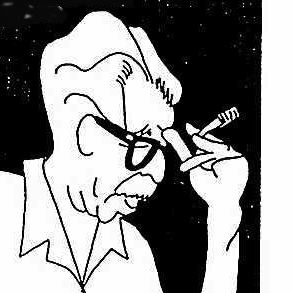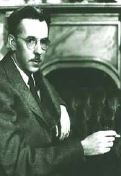The Great Macbeth Mystery
Expected Answers
Questions on the text:
1. Why did the American woman buy and actually read Macbeth?
➢ she wanted to buy a detective story as night reading
➢ the Macbeth looked like the books in the Penguin detective series – “ size and everything” (although it had a different colour)
➢ she did read it at night because she didn’t have any other book.
2. Collect the rules the American woman has for good crime fiction and list them.
➢ those you suspect the most are the ones that are never guilty--or shouldn't be, anyway. (28-39) [“It would spoil everything if you could figure out right away who did it.“]
➢ The person you suspect of the first murder should always be the second victim (42-43) [They have to keep surprising you]
➢ Much too suspicious. When they flee, they're never guilty. You can count on that. (48-49)
➢ the murderer always has to be somebody important (68-69)
➢ The husband always takes the rap when the wife is suspected
➢ People who walk in their sleep never carry lights
➢ You can't have a murderer who only appears in the story once. You can't have that (109-110)
3. Take every suspect the American presents and argue why she must be wrong.
➢ Macduff (because of the way he talked when he had discovered the body; was not natural, but rehearsed): he was not at the castle when Duncan was killed.
➢ Banquo: (we know that he never was tempted by the witches’s prophesies)
➢ the narrator’s suspects:
i. the king’s sons (they were suspected by some of the people at court…Macbeth had started the rumour.
ii. the Third Murderer (was Macbeth’s man to kill the other two murderers of Banquo)
iii. Lady Macbeth’s father
4. What is the narrator’s reaction to the woman’s theories? How would you characterize the way he behaves towards her?
➢ he “looked at her blankly”, he was absolutely surprised by the weird theories, but be remained very polite.
➢ He tried to contradict “I’m afraid”, but the woman did give him a chance to explain.
➢ You can see what he really thinks of the woman’s theories in his whispered remark to himself “Good God”
➢ He asked polite questions “How did you figure it out” and gives non-committal answers “Is that so?”
➢ The reader can only guess/see the narrator’s frustration/exasperation at the woman’s ideas by the succession of brandies he orders and drinks.
5. What kind of man do you think is the narrator?
➢ a polite English gentleman (pipe smoker like the stereotypical English detective) who seems to spend a golfing holiday in the Lake District in England. He is absolutely flabbergasted by the American woman’s ideas, but never tells her his real opinion (which we as readers can only guess). He has a great sense of humour, because the next day he comes up with an even weirder suggestion of the murderer of Duncan. He adopts the woman’s approach to literature. Deep down in his heart he isn’t serious, of course. We can conclude that from his suggestion that now he is also going to solve the murder in Hamlet (which doesn’t need solving)
6. What kind of woman is the American woman?
➢ She seems to be a naïve American woman on a golfing holiday in the Lake District in England. She usually reads detective books and is a particular fan of Agatha Christie
➢ she is very talkative and hardly gives the narrator a chance to respond.
➢ very self-confident and convinced of her weird theories
7. Why is the story funny? Explain the humour used by Thurber.
That is homework
8. What do you think is wrong with the American woman’s approach to literature?





